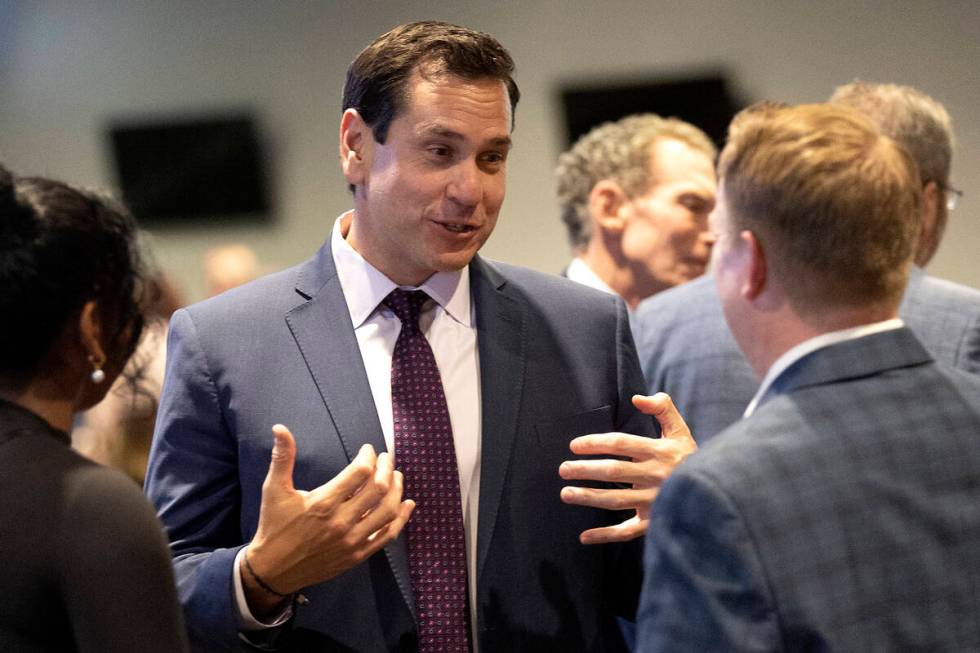Nevada rebuffs RNC claims of inconsistent voter rolls

Nevada officials rebuffed claims by the Republican National Committee about the validity of the state’s voter registration records, likening the RNC’s use of data to “comparing apples to orangutans.”
The rebuke came in a Jan. 18 letter from the Nevada attorney general’s office on behalf of Secretary of State Cisco Aguilar in response to a December 2023 RNC letter alleging inconsistencies in Nevada’s voter registration numbers and demanding Aguilar address its concerns or face legal action.
The RNC letter alleged three Nevada counties — Douglas, Lyon and Storey — have more registered voters than adult citizens over 19 and that five other counties — Carson City, Churchill, Clark, Eureka and Washoe — have “suspiciously high rates” of registered voters.
‘Comparing apples to orangutans’
Senior Deputy Attorney General Laena St-Jules wrote in the response letter sent mid-January that the state strongly disagrees with the RNC’s claims.
The attorney general’s office argues that the RNC’s analysis was made using incomparable data and that registration rates are not appropriate for determining whether a state is complying with the Nevada Voter Registration Act.
The separate data sets the RNC used is like “comparing apples to orangutans,” St-Jules wrote.
One data set, the U.S. Census Bureau’s current population survey registration rates, are “crude estimates based on historical recall,” the letter says, and are obtained through personal or telephone interviews.
“As if relying on self-report and memory were not bad enough, respondents generally also reported on the registration status of other members of the household,” the letter says. “People often do not know their own voter registration status, let alone the status of others in their household.”
The data from the current population survey is also obtained from approximately 54,000 households nationwide, the letter says, and the attorney general’s office estimates that fewer than 1,000 Nevada households were surveyed. Another data set the RNC used, the 5-year citizen voting population age survey, underestimates Nevada’s population, according to the senior deputy attorney general. It does not account for growth since 2019, and it excludes people who might be eligible voters but do not live in a county for the entire year, such as college students or military personnel, the deputy attorney general wrote.
There is no dataset that would adequately determine whether registration rates and the eligible voting population are mismatched, according to the attorney general’s office, but the more current 2022 Citizen Voting Age Population data released in June 2023 shows Nevada’s active voter registration rate has been consistently below the national average, according to the deputy attorney general.
“While not a perfect comparison, it is at least comparing apples to another fruit: oranges,” the letter says.
Voter roll maintenance
Also in the letter, the attorney general’s office highlights the procedures the state goes through to ensure the voter rolls are maintained, such as working with the Nevada Registrar of Vital Statistics every day during the work week to update counties every time a voter is identified as deceased.
“Please make no mistake, however; these are things Nevada already planned to do before receiving your letter and will continue implementing without delay,” St-Jules wrote.
Counties identify voters whose residences may have changed through postal service change-of-address information, and through identifying voters who have failed to vote in preceding elections and whose sample or mail ballots were returned undeliverable.
When counties identify voters whose residences may have changed, the county mails those voters a written notice that has a space for the voter to write their new address. If a voter does not return the postcard within 33 days of its mailing, the county will designate the voter as inactive, the letter says. And if an inactive voter fails to vote for two general elections after the notice is mailed to them, the county will cancel the voter’s registration.
The state is prohibited from removing names of certain ineligible voters 90 days before an election. The soonest Nevada’s counties can initiate the registration cancellation process again is between the June 2024 primary and the November 2024 election.
During the last legislative session, a bill was passed requiring the state to move to a top-down voter registration system, which is considered a best practice for maintaining accurate voter rolls, St-Jules wrote. The Voter Registration and Election Management Solution, which is expected to be implemented April 1, will establish a single platform at the state level that will transmit data to counties and will result in more efficient list maintenance, St-Jules wrote.
“We hope that this response provides you with adequate information and that you will not pursue litigation,” St-Jules wrote.
The Republican National Committee did not return a request from the Las Vegas Review-Journal.
2024.01.18 NVSOS Response Letter by Jessica Hill on Scribd
Contact Jessica Hill at jehill@reviewjournal.com. Follow @jess_hillyeah on X.